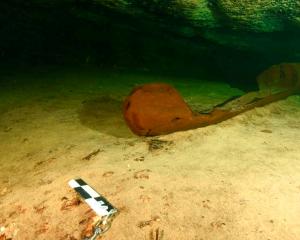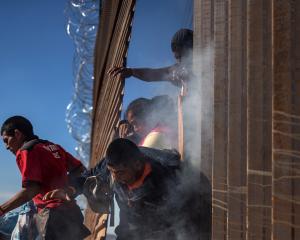
Gunmen shot and killed a mayor running for re-election in Mexico on Thursday (local time), the second murder of a politician in a week after a candidate running for federal office was shot in the back of the head while taking a selfie with a supporter.
At least 113 politicians have been killed in the bloodiest election campaign in Mexico's modern history, and the violence appears to be intensifying in the final weeks before the July 1 nationwide election.
Political assassinations have rocked the electoral season leading up to July 1, when voters will decide over 3000 down-ballot seats and elect a new president.
Widespread disenchantment with the ruling Institutional Revolutionary Party (PRI) over record levels of violence, political corruption and sluggish economic growth has helped propel leftist Andres Manuel Lopez Obrador to lead voter preferences for the presidency.
The mayoral candidate, Alejandro Chavez Zavala, of the right-left coalition led by the National Action Party (PAN), died in a hospital on Thursday while being treated for wounds, Michoacan Governor Silvano Aureoles said in a tweet.
Aureoles demanded justice for the small-town mayor's murder and said that authorities would investigate the attack, in which Chavez's wife was also injured.
The announcement of Chavez's death follows the disappearance of Ismael Aguirre Rodriguez, a mayoral candidate in Nadadores, a hamlet in northern Coahuila state. Aguirre went missing in broad daylight on Tuesday after he stepped out to buy drinks, according to local media.
Fernando Puron, a federal candidate for the PRI, was slain Friday in Coahuila state after a bearded gunman opened fire on him as he greeted supporters following a political debate in Piedras Negras, a border city in northern Mexico. The shocking scene was captured on a CCTV camera.
According to Mexico City-based security consultancy Etellekt, at least 113 candidates and politicians have been killed since September. Many of the slain candidates were running for local office.
"The risk going forward is that there will be reluctance to participate in local politics because it has become so dangerous," said Michael Lettieri, a historian at the Center for US-Mexican Studies at the University of California, San Diego.













